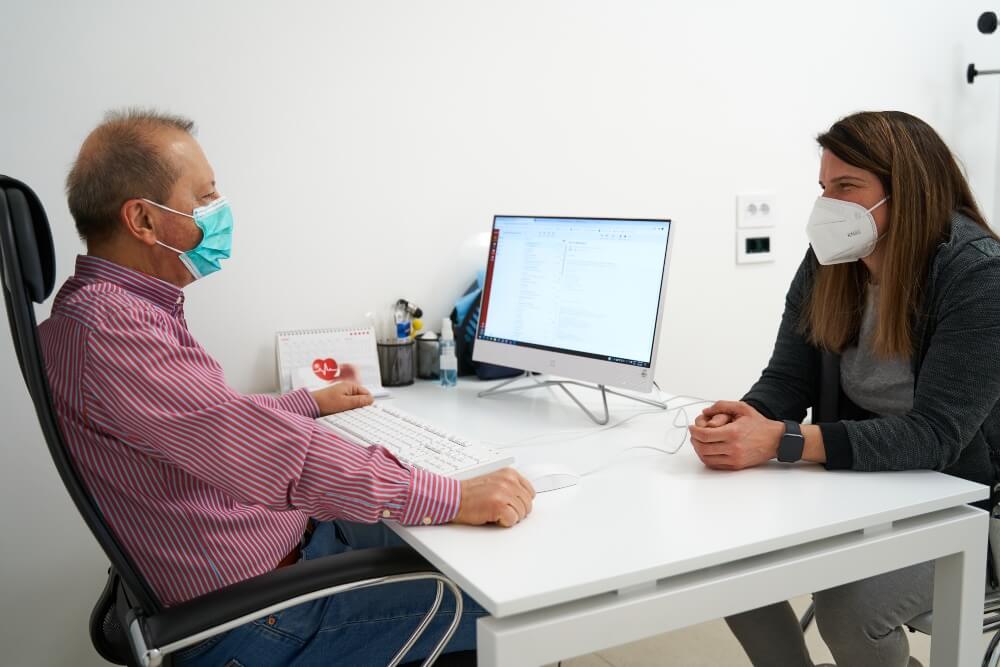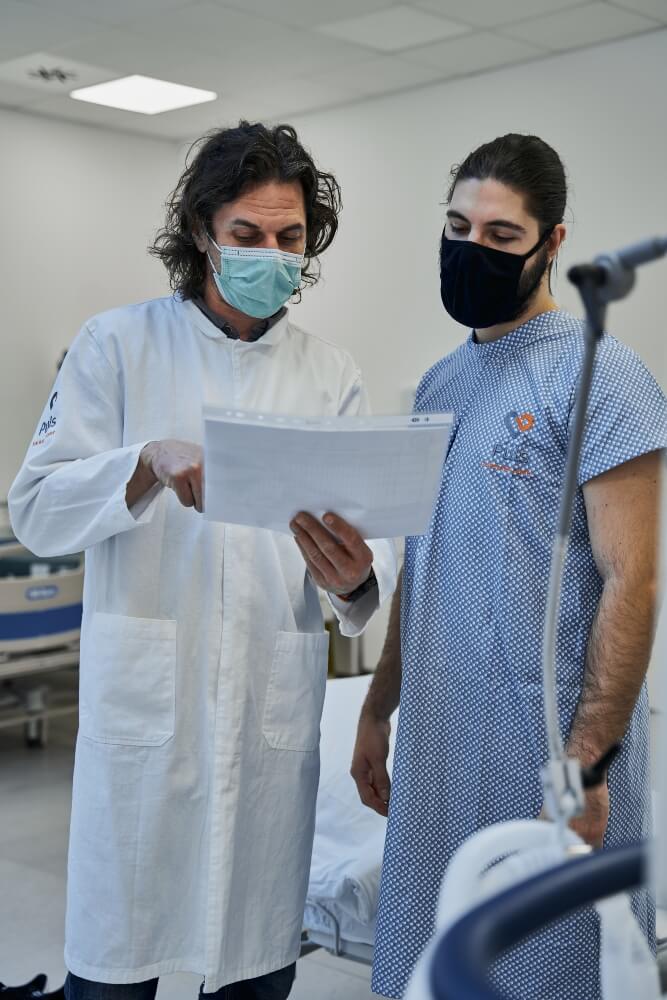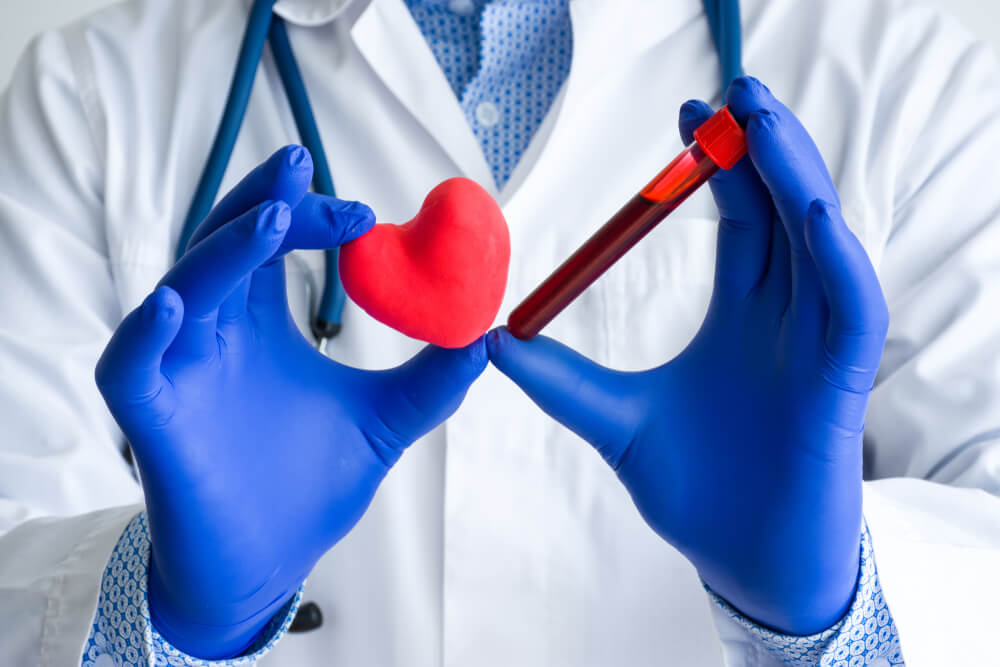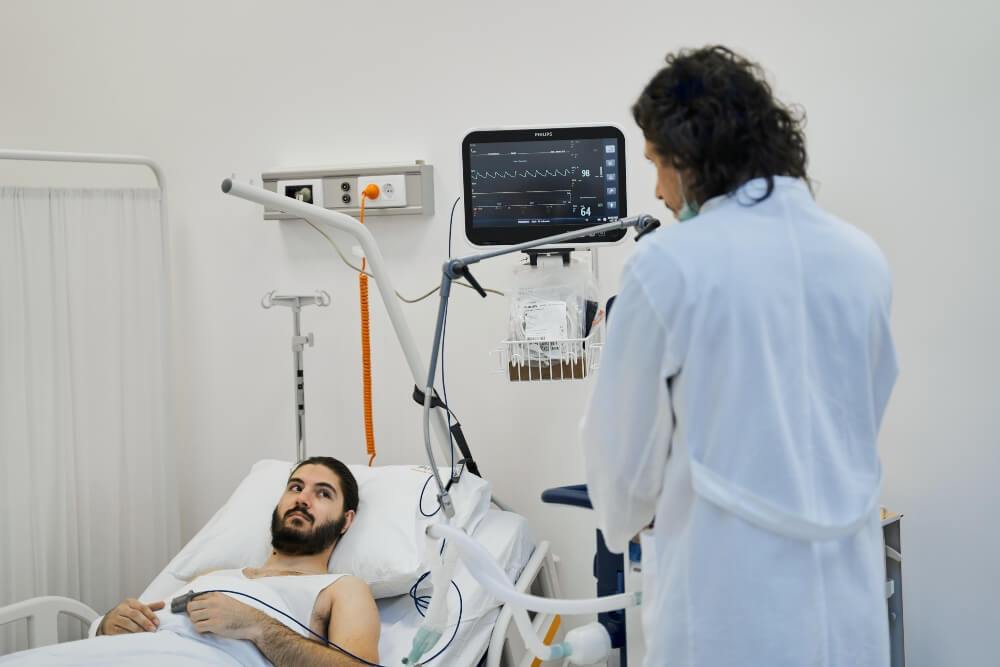Heart palpitations, rapid heart rate and fatigue are some of the most common symptoms that patients complain about, and so far it has been established that they can persist for months after a negative test.
When is it time for new heart checks?
These are universal questions of people who have just recovered and it is good that more and more of them realize that there is often a need for further research and that things should not be left to chance.
We will try to answer you if and when you should necessarily report for a heart examination after being hospitalized for Covid-19 and when that decision is not so urgent and is more desirable for preventive reasons.
Diagnosing the Corona virus
Over the past year, much has been discovered about the virus that caused the pandemic. The first information that it is a virus capable of causing only respiratory infections is outdated and incorrect. Corona is a systemic disease that can affect many organs and very easily finds the weakest points in our body, that’s why chronic patients are always classified as a risk group for the development of severe forms of Covid.
Correct and quick diagnosis of Corona is of crucial importance for a quick reaction, because if the treatment is started at an early stage, the chances of developing a more severe picture are smaller. Of course, with a disease such as corona, the phases are measured in days and there really isn’t much time to hesitate.
If you have symptoms, especially if they are more intense – don’t wait for them to pass by themselves, contact your doctor. When Corona is not diagnosed, it can happen that the disease itself goes away without major problems, but the consequences remain hidden for some time. After the onset of symptoms, some precious time for early treatment may be lost.
On the other hand, if you have been diagnosed with an infection with this virus, the doctor will follow your recovery, and he will then give you the best advice for further check-ups and the period in which you should do them, because these are individual things and depend on the person to person, from the severity of the clinical picture, from the condition of the patient before and after the disease, from the accompanying diseases, etc.
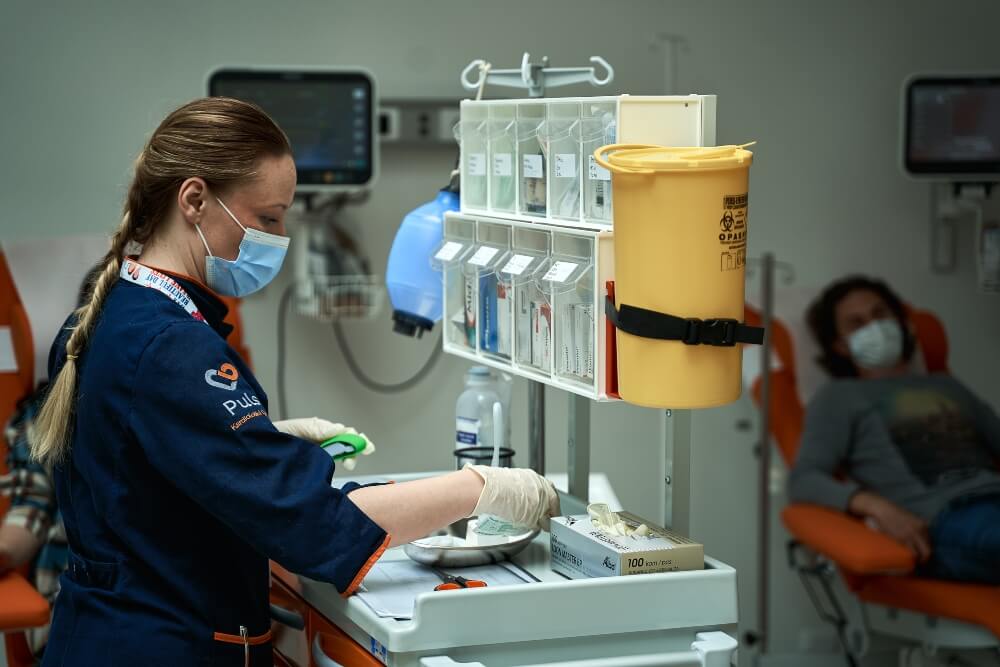
Consequences of the corona virus
All the consequences of the corona virus are not yet known, because data is still being collected and various studies are ongoing. We will single out the most common ones, whose connection with Covid has already been reliably proven.
- Myocarditis – After infection with the Coronavirus, some patients continued to feel extremely weak, complained of chest pain and discomfort, heart palpitations, rapid heart rate, fatigue, shortness of breath, sore muscles and joints.
After a cardiology examination, some of them were diagnosed with myocarditis, i.e. inflammation of the heart muscle. Inflammation of the heart muscle must be adequately treated and includes therapy, rest and further monitoring. If it is not treated, it can lead to deterioration of the patient’s health condition, heart failure, even to heart attack and death.
Myocarditis can be detected by ultrasound of the heart because it will be noticed that the systolic and diastolic function of the left side of the heart is reduced, fluid in the heart sac and sometimes a clot in the left ventricle can be seen. This is not the only method, so even a complete blood count can signal that there is myocarditis, as can an EKG, because the heart rhythm will be disturbed, and an X-ray of the heart can give quite reliable results.
- Elevated D-dimer – D-dimer is a test recommended for patients with suspected thrombosis, and it has been proven that the formation of thrombus is associated with the infection of the Coronavirus, so this test will be performed on a large number of people who test positive on the PCR test.
D-dimer is a protein part that is formed when the blood coagulum breaks down and it indicates that the blood coagulation process is active in the body. Elevated D-dimer may indicate an increased tendency to form blood clots in the patient’s body.
In order to avoid thrombosis, patients are prescribed blood-thinning drugs. The type of medication and the method of administration depend on many things, but in more severe conditions, they are first injected subcutaneously, and then the person continues to take the medication orally for some time, even six months after Corona. Everything is individual and the cardiologist can give you the best instructions. At the Pulse Cardiology Center, you can do all the tests you need to check the condition of your heart after undergoing corona.
- Very low or high blood pressure – Variations in blood pressure and problems with it are also observed and it is necessary to establish the causes in order for the therapy to be effective. Once you have been diagnosed with a high blood pressure problem and have received treatment, your annual routine must include monitoring the effectiveness of that treatment.
- Changes in the lungs – These are perhaps the most common problems that remain long after Covid, but for now there is information that they can be solved. Not every severe picture of the infection will mean the development of pulmonary fibrosis, which is very good news. Retraction of the changes has been observed, but corticosteroid therapy and breathing exercises are necessary for this.
Recovery from Covid-19
You must be wondering, especially if you have been feeling the effects of the Corona virus for some time, is recovery from Corona even possible?
Recovery from Corona is possible, but it is necessary to avoid a sudden increase in effort to which we expose ourselves in every sense. Regardless of whether the work we do is in the office or in the field, we really need to rest while we are sick, and when we return to our daily activities, the return should be gradual.
Nutrition will also play an important role during the recovery period, so a Mediterranean diet is recommended, which is rich in fresh, healthy foods that have a lot of fiber, minerals and vitamins.
Stress should be avoided as much as possible, because it has a negative effect on the balance of the entire organism, and physical activity must be moderate.
For some people, unfortunately, Corona was a trigger for even more serious health problems, but if you continue to monitor your condition and attend regular checkups, there is a high probability that the danger will be noticed in time.
Who should go for a cardiology examination after Corona?
People who had very mild symptoms or had no symptoms do not need a heart examination, but a preventive examination is always recommended. A preventive heart checkup can never be a bad idea and a waste of time.
It is mandatory to see a cardiologist:
- persons who had a severe or moderately severe clinical picture of this disease
- people who feel some difficulties even after the illness (chest pain, difficulty breathing, heart palpitations, rapid heart rate, fatigue…)
- people who have other chronic diseases, because they are more likely to develop consequences
- professional athletes (it is not mandatory, but it is very good if professional athletes check the condition of their heart before returning to training, because the effort they are exposed to every day can be dangerous if they have myocarditis or some other problem).
Examinations after corona treatment
Puls Cardiology Center has created Covid-19 and Post-Covid packages that include all the basic analyzes needed to form a diagnosis.
A post-Covid cardiac check-up involves:
- blood count
- biochemical analyses
- Covid IgG antibodies
- D-dimer
- CT chest
- EKG
- examination by a cardiologist or pulmonologist
When to do cardiology examination after Covid-19?
As for the period in which these analyzes should be done, it will also depend on the patient. If you feel unwell, you should not wait long, make an appointment as soon as possible.
If the symptoms after Corona are mild, in agreement with your chosen doctor, decide when it is time for you, and you can also call our center, we will try to help you.
If you feel well and do not feel the consequences, you can still undergo these analyzes after a few months for preventive reasons.
Teams of cardiologists, pulmonologists and radiologists are always at your disposal here. Together, they formed these special packages based on their previous experiences in treating and caring for patients who presented with symptoms related to Corona and after the virus had passed.
Don’t let anything surprise you, react in time.

